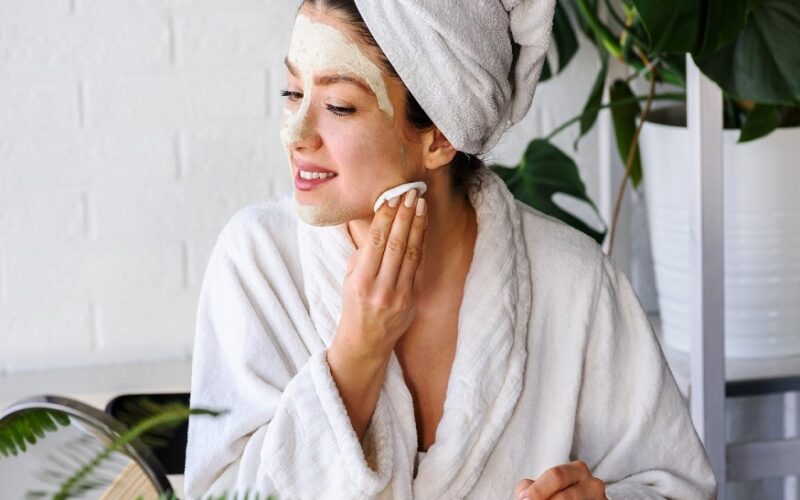Melanated skin requires tailored care to maintain a healthy, radiant complexion and address common concerns such as hyperpigmentation and dark spots. Due to higher melanin content, melanated skin can be more prone to discoloration after acne, sun exposure, or inflammation. Fortunately, incorporating targeted melanated skin care practices can help reduce these issues, even out skin tone, and protect skin from further damage. One of the most effective tools in this process is the best vitamin C serum, which can brighten the skin and promote an even complexion.
This article explores the most effective approaches to caring for melanated skin, including daily routines, ingredients to look for, and strategies to target hyperpigmentation and dark spots.
Understanding Hyperpigmentation in Melanated Skin
Hyperpigmentation occurs when melanin, the pigment responsible for skin color, becomes overproduced in certain areas. In melanated skin, this can result in dark spots, uneven patches, or post-inflammatory marks after acne or irritation. Common triggers include:
- Sun exposure without adequate protection
- Hormonal fluctuations
- Acne scarring
- Skin injuries or inflammation
Because melanated skin naturally contains more melanin, hyperpigmentation can be more noticeable and persistent. Understanding these causes helps in selecting the right melanated skin care products and developing a consistent routine to prevent further discoloration.
Benefits of Targeted Melanated Skin Care
Tailoring your skincare to melanated skin has several advantages:
- Even skin tone: Targeted ingredients can reduce dark spots and discoloration.
- Improved texture: Hydration and gentle exfoliation help maintain smooth, supple skin.
- Prevention: Proper sunscreen use prevents UV-induced pigmentation and future dark spots.
- Radiance: Brightening ingredients restore a healthy, natural glow.
Focusing on these benefits ensures that your routine is effective and addresses the specific needs of melanated skin.
Key Ingredients for Hyperpigmentation and Dark Spots
Selecting the right active ingredients is essential for melanated skin care. Some of the most effective options include:
- Vitamin C: A powerful antioxidant, it helps fade dark spots, even skin tone, and protect against free radical damage. Using the best vitamin C serum consistently can significantly brighten the complexion and enhance skin clarity.
- Niacinamide: Reduces the appearance of dark spots and strengthens the skin barrier.
- Alpha arbutin: Targets melanin production and helps fade hyperpigmentation.
- Hyaluronic acid: Provides hydration, supporting overall skin health and improving the appearance of uneven texture.
- Sunscreen: Essential for preventing UV-induced hyperpigmentation and protecting results from other treatments.
Combining these ingredients in a consistent routine can provide both treatment and prevention for hyperpigmentation and dark spots.
Building a Routine for Melanated Skin
An effective melanated skin care routine focuses on cleansing, targeted treatments, hydration, and sun protection. Here’s a step-by-step approach:
Morning Routine
- Cleanse: Use a gentle, hydrating cleanser to remove overnight oil and impurities without stripping the skin.
- Vitamin C serum: Apply the best vitamin C serum to brighten skin, reduce dark spots, and provide antioxidant protection.
- Moisturize: Follow with a lightweight moisturizer to maintain hydration.
- Sunscreen: Apply broad-spectrum sunscreen with adequate SPF to protect against UV damage and prevent new hyperpigmentation.
Evening Routine
- Cleanse: Remove makeup, sunscreen, and impurities with a gentle cleanser.
- Exfoliate (1-2 times per week): Use mild chemical exfoliants such as lactic or glycolic acid to remove dead skin cells and encourage cell turnover. Avoid over-exfoliating, as melanated skin can be prone to irritation.
- Targeted treatments: Apply serums or creams with ingredients like niacinamide, alpha arbutin, or retinol to address dark spots and hyperpigmentation.
- Moisturize: Use a nourishing moisturizer to support skin repair and hydration overnight.
Consistency in following these routines is essential for achieving visible improvements in skin tone and clarity.
Protecting Against Sun-Induced Hyperpigmentation
Sunscreen is one of the most important aspects of melanated skin care. UV exposure can worsen existing dark spots and trigger new hyperpigmentation. Look for broad-spectrum sunscreens with adequate SPF, and apply generously to all exposed areas daily, even on cloudy days. Reapply every two hours if spending time outdoors.
Sunscreen not only prevents damage but also helps maintain the results achieved from hyperpigmentation treatments and brightening serums.
Tips for Maximizing Results
To enhance the effectiveness of melanated skin care products, consider the following tips:
- Patch test new products:Melanated skin can react to strong actives, so test new ingredients on a small area first.
- Introduce products gradually: Begin with one active ingredient at a time to reduce irritation risk.
- Avoid harsh scrubs: Overly abrasive products can trigger inflammation and worsen hyperpigmentation.
- Maintain hydration: Well-hydrated skin repairs faster and responds better to treatments.
- Be patient: Reducing dark spots and hyperpigmentation takes time. Consistent care over weeks or months is required to see results.
Common Mistakes to Avoid
Even with the right products, improper use can reduce effectiveness or cause new issues:
- Skipping sunscreen: UV exposure can undo the benefits of hyperpigmentation treatments.
- Overusing active ingredients: Excessive use of vitamin C, retinoids, or exfoliants can irritate the skin and worsen discoloration.
- Ignoring skin reactions: Redness or burning may indicate that a product is too strong. Adjust frequency or consult a dermatologist.
- Using multiple strong actives together: Layering too many potent ingredients can compromise skin barrier function and cause sensitivity.
Avoiding these mistakes ensures that melanated skin care routines remain safe and effective.
Caring for melanated skin requires a thoughtful approach to prevent and reduce hyperpigmentation and dark spots. Incorporating the best vitamin C serum, along with hydrating and protective ingredients, provides a powerful foundation for radiant, even-toned skin. A consistent routine that includes cleansing, targeted treatments, moisturization, and sun protection can dramatically improve skin appearance and maintain its health over time.
By understanding the unique needs of melanated skin and following a structured care regimen, it is possible to address hyperpigmentation, enhance natural radiance, and enjoy long-term skin health. Consistency, patience, and the right ingredients are key to achieving the glowing, balanced complexion every individual desires.

